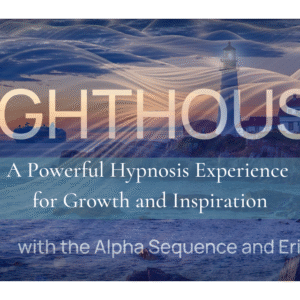The Parking Lot Revelation
“‘When did I stop feeling like myself?’ Sarah whispered to the steering wheel, engine idling in the grocery store parking lot.” Her fingers drummed against the plastic, a nervous habit that replaced the ritual of lighting up three months ago. The vinyl seat creaked as she shifted, avoiding the entrance where she’d have to walk past the convenience store window, past the display she could map from memory. Her phone buzzed with a text from her daughter about weekend plans, but Sarah couldn’t muster enthusiasm for anything lately. Everything felt muted, like watching life through frosted glass. She’d done the “right thing,” quit cold turkey after her doctor’s warning, but the hollow ache in her chest hadn’t filled in. Instead, it had grown, spreading into her evenings, her morning coffee, her drives home from work. The craving wasn’t even for nicotine anymore. It was for something, anything to make her feel complete again, to fill the emptiness that seemed to expand with each smoke-free day.
What terrified Sarah most wasn’t the occasional urge to smoke. It was the creeping fear that she’d spend the rest of her life feeling like a ghost of herself, going through motions without meaning. She’d traded one emptiness for another, and the bargain felt like a cruel joke. The identity she’d built around those cigarette breaks, those moments of pause and reflection, now replaced by anxious restlessness, left her mourning a companion that had shaped twenty years of her life. Beneath the grief lay shame for missing something that was killing her, and guilt for feeling ungrateful when everyone congratulated her progress. Her improved breathing and extra money meant nothing if every day felt like surviving rather than living.
Her family noticed her distance. Her hobbies gathered dust in the garage. The stress she once “managed” with smoke breaks now festers, making her wonder if she’s strong enough to sustain this hollow victory. Her daughter’s text sat unanswered on her phone screen. A pottery class invitation. Something they could do together. Sarah stared at the words, feeling nothing, and that numbness scared her more than any craving ever had. She needed help, not to quit smoking, she’d already done that, but to find out who she was supposed to be now.
Finding the Missing Piece
Sarah found herself in the hypnotist’s office on a Thursday afternoon, sunlight streaming through gauze curtains. As she settled into the chair and closed her eyes, following the gentle guidance to notice her breath, her shoulders, the weight of her body against the cushions, something unexpected happened. The hollow feeling in her chest didn’t disappear. Instead, it transformed into something she could finally examine.
The hypnotist guided her to a crossroads, a place where past met present. Sarah found herself standing in a memory she’d almost forgotten, outside a college party, twenty-two years old, a friend offering her that first cigarette. But this time, watching the scene unfold as if on a screen, she saw it differently. She observed the younger Sarah with compassionate detachment rather than judgment. She noticed the anxiety in that young woman’s posture, the desperate need to fit in, the belief that this small act would make her belong.
“Imagine yourself gently declining the offer,” the hypnotist’s voice suggested, and Sarah watched her younger self do exactly that. In the hypnosis session, she witnessed an alternate timeline unfold, one where she walked away, where the anxious restlessness found other outlets, where twenty years of her life took a different shape. The visualization wasn’t about regret. It was about recognizing that she’d always had the power to choose.
Then came the moment that changed everything. “Feel the chains of past habits breaking away,” the hypnotist said, and Sarah experienced a profound physical release in her chest. The hollow space suddenly felt like potential rather than absence. The metaphor of smoke dissipating, air becoming “clear and pure,” resonated through her entire body. She visualized not just her lungs clearing, but her mind and emotional landscape opening up, like windows thrown wide after a long winter.
The hypnotist guided her forward in time, a year from now, and Sarah saw herself painting again. The image arrived with startling clarity: her hands covered in clay dust, not cigarette ash. She heard herself laughing genuinely with her daughter in that pottery class, not the polite chuckle she’d been forcing for months. She felt the satisfaction of a morning hike without wheezing, her lungs expanding fully, her body strong and capable. These weren’t fantasies. They felt like memories of a future that was already unfolding.
“Feel the pride swelling within you,” the voice continued, and Sarah did. Not pride in resisting cigarettes, but pride in actively choosing fulfillment. The anchor planted itself deep: she wasn’t losing something. She was becoming someone. The empowerment wasn’t about white-knuckling through cravings. It was about recognizing that the emptiness had always been there, just masked by nicotine, and now she finally had the clarity to fill it intentionally.
Becoming Whole
Sarah opened her eyes feeling fundamentally different. The hollow ache in her chest had transformed into creative hunger, an appetite for life she hadn’t felt in years. On the drive home, she made an impulsive stop at an art supply store, her first genuine impulse in months. The smell of paint and canvas filled her with an excitement she’d thought was gone forever.
She texted her daughter back with real enthusiasm about the pottery class, her thumbs flying across the screen. The satisfaction she felt wasn’t from abstaining from cigarettes. It was from reconnecting with her authentic self, the person who’d gotten buried under two decades of smoke breaks and numbed emotions. The supporting benefits, her healing lungs, her growing confidence, her emotional resilience, now felt like tools rather than consolation prizes. Each one reinforced her capacity to build a life rich with meaning.
That evening, Sarah pulled her old easel out of the garage. As she set it up by the window, she noticed how easily she breathed, how her hands didn’t shake, how her mind felt clear and focused. She wasn’t fighting cravings. She was actively crafting fulfillment, and that distinction changed everything. The emptiness hadn’t been created by quitting. It had always been there, waiting for her to notice it, to honor it, to fill it with something real.
For the first time in three months, Sarah felt complete. Not because the hollow space was gone, but because she finally understood what it was: an invitation to become whole.



